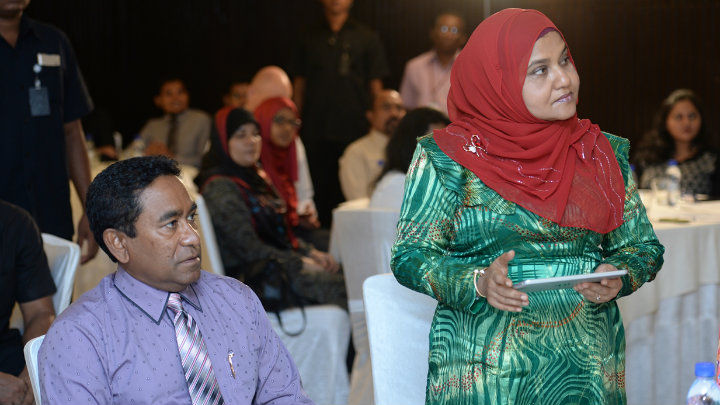First couple’s cash handouts to single parents spark concern
Cash handouts to single mothers from President Abdulla Yameen and First Lady Fathimath Ibrahim has sparked concerns of corruption and a return to the patronage systems of old.

08 Dec 2015, 09:00
Cash handouts to single mothers from President Abdulla Yameen and First Lady Fathimath Ibrahim has sparked concerns of corruption and a return to the patronage systems of old.
Single mothers who have children under the age of 18 are eligible to collect MVR1000 (US$65) per child. Since Thursday, the first couple have now disbursed MVR790,000 (US$51,232) for some 790 children.
There are some 3000 single parents registered with the state. They receive MVR1000 per child under 18 years of age, up to a maximum of MVR3,000 (US$195) per family. More than 5,000 children benefit from the allowance, which means the first couple will distribute more than MVR5million (US$324,254) to single parents.
According to Fathimath Zaina, an aide at the First Lady’s Office, the charity handouts is aimed at “helping single mothers with the costs of the upcoming academic year.”
Become a member
Get full access to our archive and personalise your experience.
Already a member?
Discussion
No comments yet. Be the first to share your thoughts!
No comments yet. Be the first to join the conversation!
Join the Conversation
Sign in to share your thoughts under an alias and take part in the discussion. Independent journalism thrives on open, respectful debate — your voice matters.




